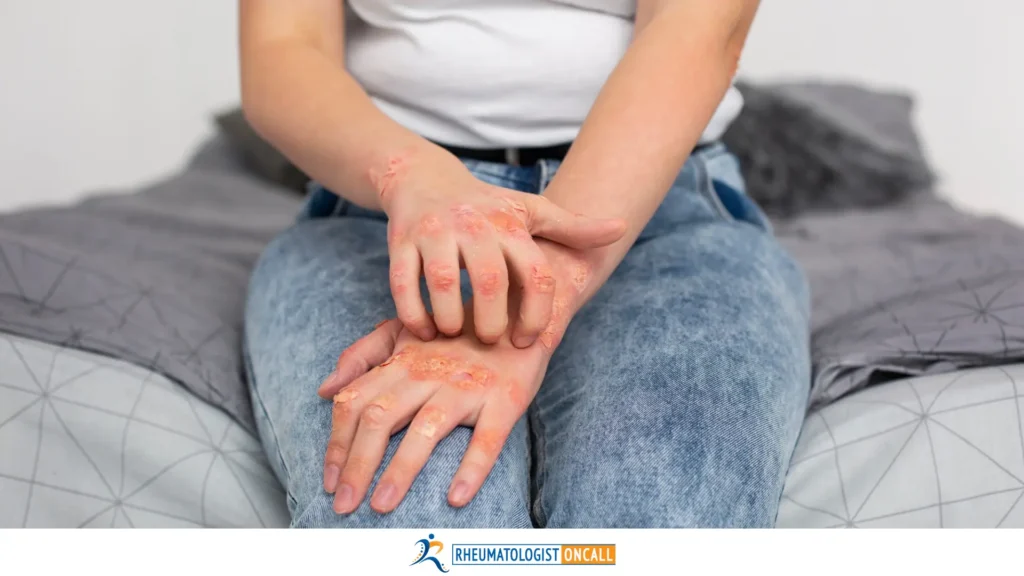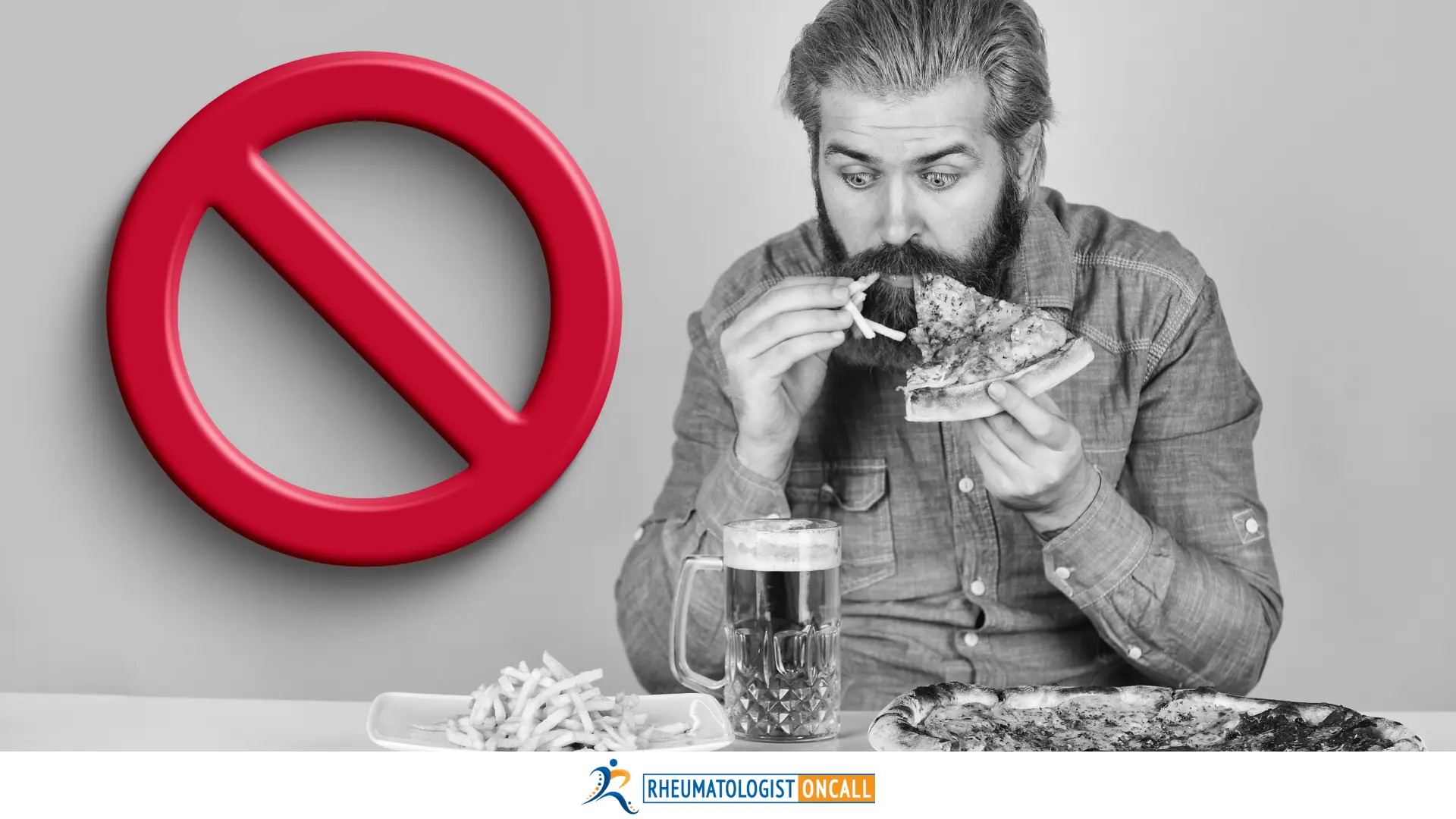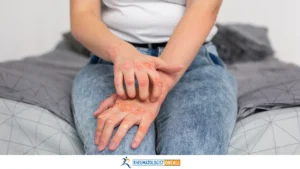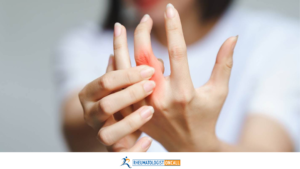SHARE
Have you ever felt blindsided by a Psoriatic arthritis (PsA) flare? Why does it happen, or how can it be stopped? If so, you’re not alone. Flares can feel overwhelming, but you can take control with the proper knowledge and support.
What Is a Psoriatic Arthritis Flare?
A Psoriatic arthritis (PsA) flare is a sudden and temporary increase in disease activity and symptoms. This may be a setback, especially if your condition has been well-controlled. Your symptoms may include:
- Painful and swollen joints—common in fingers, knees, and toes.
- Morning stiffness—lasting over an hour, often signaling inflammation.
- Fatigue—profound and persistent exhaustion.
- Skin flares—worsening of psoriasis patches or the appearance of new lesions.
- Tendon pain—in areas like the Achilles tendon or elbows.
But what exactly causes these flares? While there’s no one-size-fits-all answer, so understanding your unique triggers is essential for managing the disease effectively.
Can You Have Flares Even When Your Disease Is Well-Controlled?
Yes, it’s possible to experience flares even with a well-managed PsA treatment plan. These flares don’t always signal a failure in treatment but may instead point to external or internal triggers that temporarily disrupt your body’s immune system balance.
Some common triggers include:
- Infections: Viral or bacterial infections can irritate the immune system and lead to flare-ups.
- Dietary Indulgences: Consuming processed and ultra-processed foods, excessive sugar, or alcohol can fuel inflammation.
- Physical or Emotional Stress: Overexertion or psychological stress often exacerbates autoimmune disease symptoms.
- Weather Changes: Shifts in temperature or humidity can impact joint health.
However, frequent flares may indicate suboptimal treatment and adjustments to your medication or lifestyle might be needed.
What Are the Warning Signs for PsA flare?
Recognizing the signs of a flare early can help you manage symptoms more effectively. Most patients report noticing specific patterns or symptoms before a full-blown flare occurs.
Key Warning Signs of a PsA Flare
- Increased Joint Pain: A dull ache or sharp pain in affected joints, often worse in the morning.
- Persistent Fatigue: Feeling more tired than usual, even after rest.
- Swelling and Warmth: Joints might appear red, warm, or visibly swollen.
- Skin Worsening: Psoriasis plaques may itch, redden, or expand.
- Mood Changes: Anxiety or irritability may accompany physical symptoms.
If you’re experiencing any of these, taking proactive steps can help reduce the severity of the flare.
Practical Tips to Calm PsA Flare
When a PsA flare strikes, it’s essential to focus on strategies that minimize discomfort and promote recovery.
1. Prioritize Rest and Gentle Movement
- Rest inflamed joints to prevent further irritation.
- Opt for low-impact exercises like swimming or light yoga to keep your joints mobile without overexertion.
2. Use Heat and Ice Therapy
- Apply an ice pack to swollen joints for 10-minute intervals to reduce inflammation.
- Use a heating pad or warm towel for stiffness relief, especially in the morning.
3. Adopt Anti-Inflammatory Nutrition
- Avoid processed foods, sugary treats, and alcohol during a flare.
- Focus on anti-inflammatory foods like leafy greens, berries, nuts, and omega-3-rich foods such as fish.
4. Consider Over-the-Counter Medications
- Medications like ibuprofen, naproxen, or Tylenol can provide temporary relief. However, avoid extended use without consulting a rheumatologist.
5. Practice Stress Reduction Techniques
- Try mindfulness exercises like deep breathing or meditation to lower stress levels.
- Engage in relaxation practices like yoga or tai chi, which also offer physical benefits.
What to Avoid During a PsA Flare?
To recover more quickly from a flare, avoid the following behaviors that can worsen inflammation:
- Overexertion: Heavy lifting or high-impact exercises can strain inflamed joints.
- Poor Nutrition: High-sugar or processed foods fuel systemic inflammation.
- Excess Alcohol: Alcohol interferes with medications and worsens gut health.
- Sleep Deprivation: Lack of quality sleep amplifies fatigue and pain sensitivity.
- Stressful Environments: Chronic stress can keep the immune system on high alert, prolonging the flare.
How Long Do PsA Flares Last?
Flares can last anywhere from a few days to several weeks, depending on individual factors such as:
- Severity of Disease: Patients with poorly managed PsA tend to experience longer flares.
- Triggers: An untreated infection or persistent stress can extend the duration of a flare.
- Lifestyle Factors: Poor nutrition, sleep deprivation, and lack of exercise may delay recovery.
Proactively addressing these factors through self-care and prompt medical guidance can help shorten flare durations.
Our Holistic Approach at Rheumatologist OnCall
At Rheumatologist OnCall, we believe in treating the whole person, not just the disease. Our personalized care plans integrate:
- Traditional Treatments: Adjusting medications as needed to control disease activity.
- Lifestyle Strategies: Anti-inflammatory diets, sleep optimization, and exercise guidance.
- Mind-Body Techniques: Incorporating stress management and mindfulness to reduce triggers.
- Education and Empowerment: Helping patients recognize early signs of flares and take control of their health.
We offer virtual consultations and customized support so you can access expert care from the comfort of your home.
Are you tired of letting flares disrupt your life? At Rheumatologist OnCall, we offer personalized, holistic care tailored to your unique needs.
Don’t wait for the next flare to take action. Contact us now to regain control and live your best life with PsA.
FAQs About Psoriatic Arthritis Flares
1. What exactly causes PsA flares?
PsA flares are triggered by factors such as infections, stress, poor nutrition, and physical overexertion. They result in a temporary increase in inflammation and symptoms.
2. Are flares a sign that my treatment isn’t working?
Not always. Occasional flares can happen even with well-controlled PsA. However, frequent or severe flares may require adjustments to your treatment plan.
3. Can diet really affect PsA flares?
Yes! Foods high in sugar, trans fats, or alcohol can increase inflammation, while anti-inflammatory diets rich in omega-3s, fruits, and vegetables can help manage symptoms.
4. Is exercise safe during a flare?
Gentle, low-impact exercises like stretching or swimming can be beneficial. Avoid high-impact activities that may strain inflamed joints.
5. How can I prevent future flares?
Adopt a holistic approach to your health:
- Maintain a nutritious diet.
- Get consistent, high-quality sleep.
- Practice stress reduction techniques.
- Work closely with your rheumatologist to optimize your treatment plan.















